How to water tomatoes during flowering?
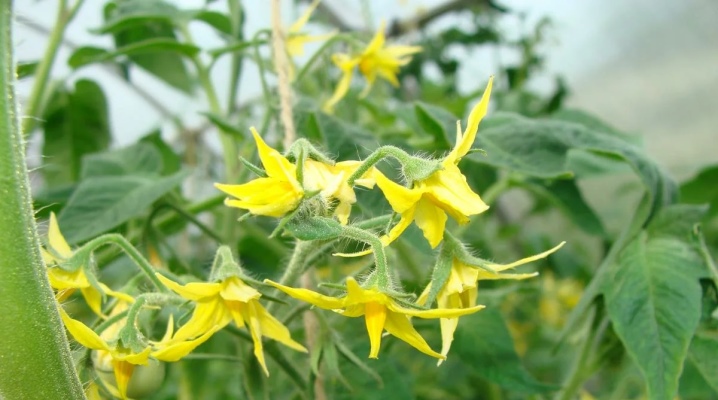
Experienced gardeners know that getting good seeds, growing seedlings and planting them is not enough to get an excellent harvest. Tomatoes must also be properly looked after. Close attention should be paid to watering, the frequency and abundance of which depends on the whims of the weather. How to water tomatoes in a greenhouse and in the open field in hot weather, at low temperatures and during the rainy season - we'll talk in this article.
Fundamental rules
Tomato bushes do not like high atmospheric humidity (at a humidity level of more than 80%, pollen sticks together, and pollination does not happen), in this regard, it is best to water at the root, along the grooves. Water should not come into contact with leaves and stems of vegetation.
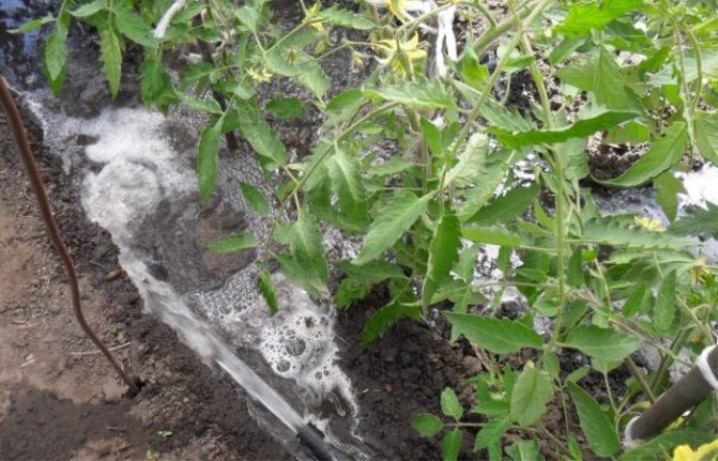
Based on the option of growing tomatoes in greenhouses or in the open field, the peculiarity of watering the plantings will vary greatly. In a greenhouse, moisture cannot quickly evaporate from the ground, since this structure makes it possible to form its own microclimate inside, independent of gusts of wind and exposure to direct rays of the sun. This makes it possible to adjust the moisture content of the earth in accordance with the temperature of the atmosphere.
In the greenhouse, tomatoes must be watered from early morning until 12 noon. If additional watering is needed in hot weather, it should be carried out no later than 5 pm so that the greenhouse has time to ventilate well.
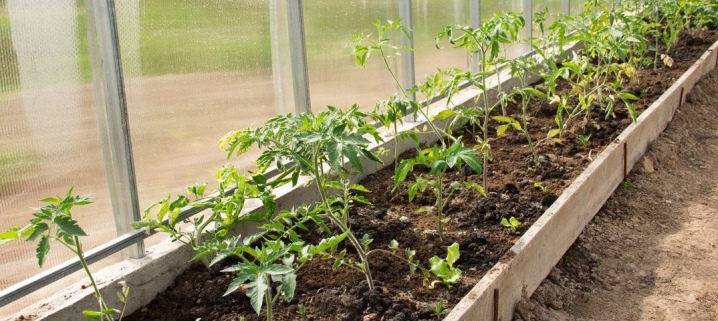
Water temperature for watering tomatoes
It is advisable to water tomatoes with warm, settled water, cold water is dangerous for them, water below 12 ° C should not be used to water vegetation under any conditions.
In the heat, tomatoes are poured with water at temperatures from 18 to 22 ° C, and on cold cloudy days, especially after cool nights, warmer, from 25 to 30 ° C.
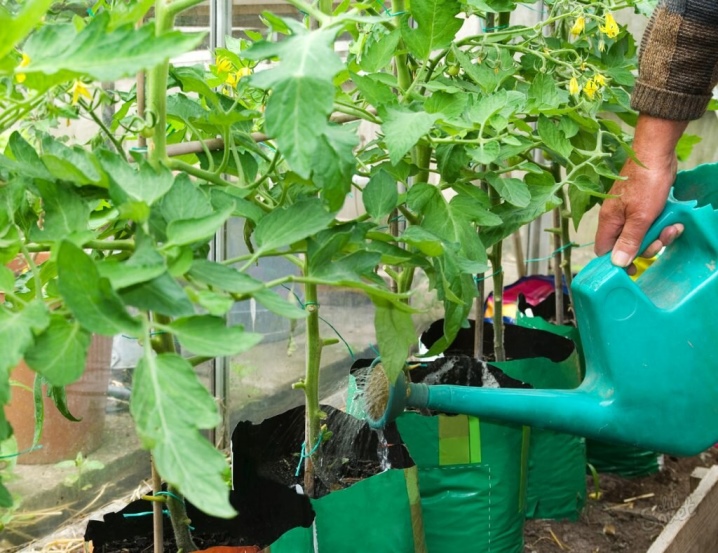
Ideal watering depth for tomatoes
In the phase of intensive growth and flowering and the first ovary of fruits, it is recommended to soak the ground to a depth of 20-25 cm, during the period of mass fruiting - by 25-30 cm.
Keeping the humidity level in the open field under control is much more difficult, and therefore any gardener must first of all rely on his own observations. It all depends primarily on the meteorological conditions. At the same time, in the heat, it is necessary to water the vegetation with water not lower than 18 ° С, and in cold weather - not lower than 20-22 ° С.
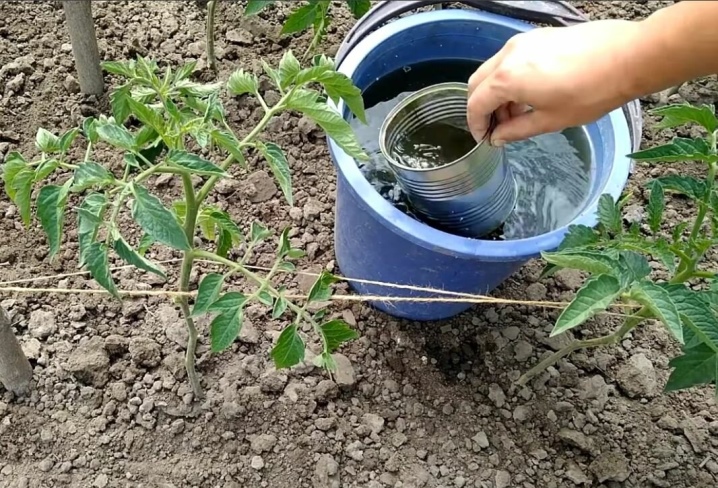
Watering frequency
The frequency of watering depends on many factors - age, atmospheric temperature, the amount of precipitation in a particular area, last autumn, spring and winter. Sometimes different varieties of tomatoes require different amounts of water.
There are established watering standards that are maintained under all conditions.
- During planting, pour up to one liter of water into each hole, even when the soil is damp. Such a stock will be needed for new fast-growing roots in the foreseeable 2-3 days. When it is hot dry weather, young seedlings need to be shaded, just do not water at this time. This trick activates the growth of deep roots against superficial ones. On the 3rd day after planting, generously moisten the soil around the stem again. It should be saturated with moisture to the roots.
- Watering is inevitable when fertilizing and fertilizing. First, the plant more actively assimilates feeding from a humid environment. Second, with water, trace elements are proportionally distributed in the soil, and young roots, reaching for moisture, will begin to feed on useful components. Third, if the permissible dose of drugs is slightly exceeded, the liquid medium will protect the plant from burns.
- Watering is not required on the eve of harvest as ripe fruits acquire a watery taste. When pinching and removing the lower leaves, moisture is also not needed. The wounds must dry. Moreover, the intensity of the movement of the juice as a result of watering will cause the re-growth of processes from the same sinuses.
- When the plant has stored the fruit for seeds, watering ends. The seeds must mature in their juice for at least 10 days.
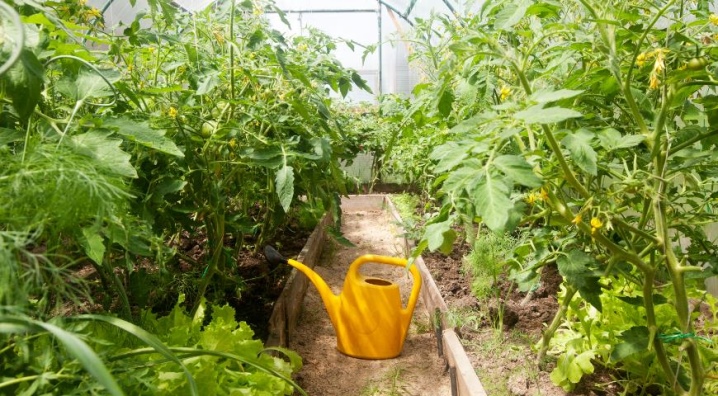
Watering during flowering
The time of flowering and fruiting is the most important for the harvest. Watering is required to be carried out with previously settled water, which should not differ with the ambient temperature and be within the range of 25-26 ° C. Do not water when the tomatoes are blooming with water from a hose, it can be too cold and cool the soil. Thus, you can do great harm to the roots, this will affect the growth processes and assimilation of useful components from the earth.
It is impossible to water the plant from above, so that drops of moisture fall on the leaves or fruits, because under the influence of the sun, the plant can get burns. Watering should be carried out exclusively at the root of the plant or in special grooves.
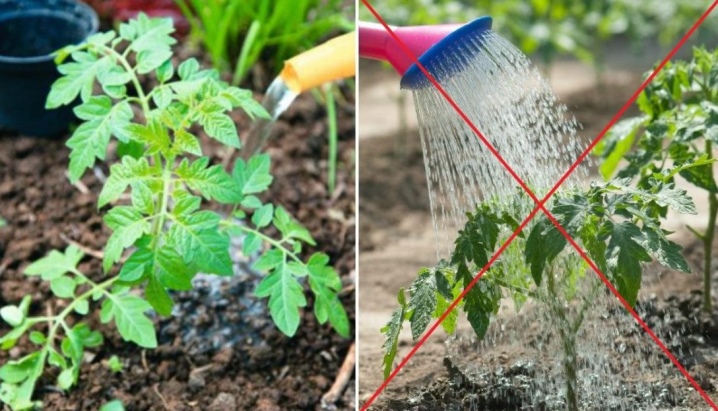
The overwhelming majority of gardeners believe that the most effective irrigation is the use of rainwater, which is soft and contains carbonic acid in its structure.
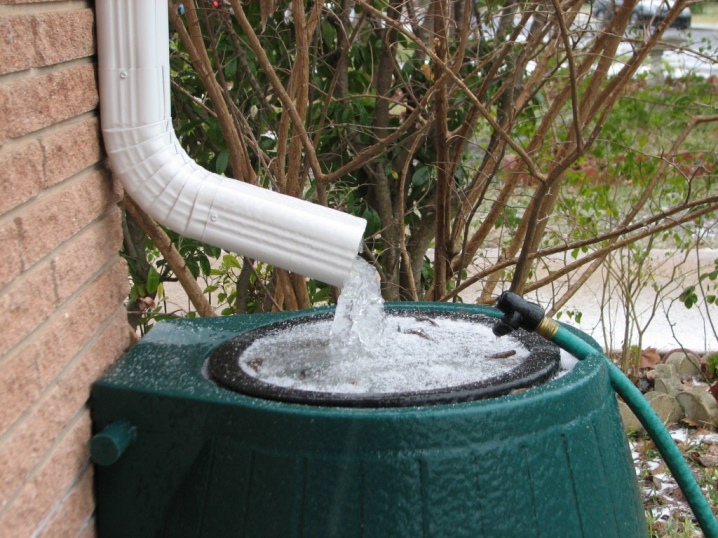
Only often it is impossible to use this water, in this regard, using hard water, you can make a special composition:
- water;
- a small amount of manure or compost;
- composition for watering tomatoes.
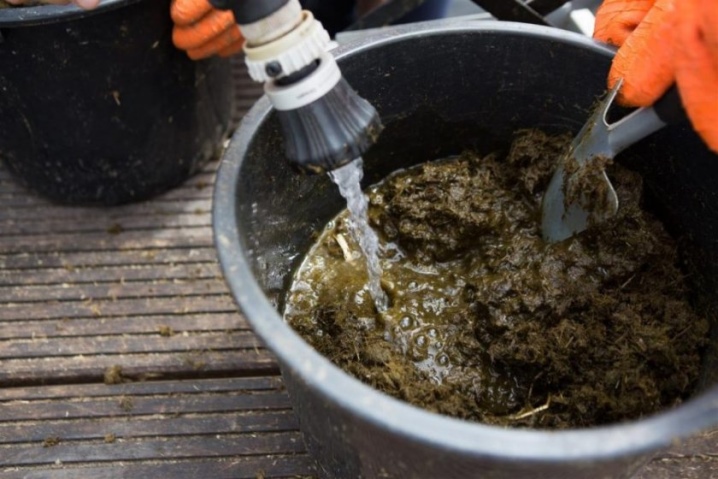
This mixture will not only provide soft water, but will also be a natural and completely safe plant nutrition. The frequency of watering depends on the temperature of the atmosphere and weather conditions, the first thing to do is to observe the soil:
- the surface is dry - therefore, you can water;
- at elevated temperatures - in the evenings, at low temperatures - once every 3 days.
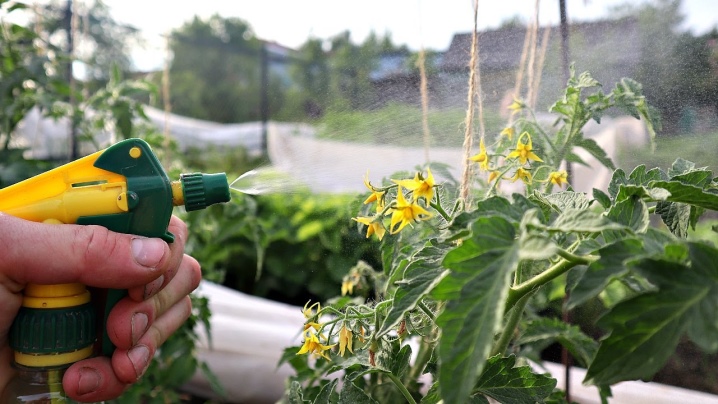
When to water?
In clear and sunny weather, watering should be carried out early in the morning, while the sun is not very active, or in the evening after sunset. In cloudy weather, tomatoes are watered at any time, but it is advisable to develop a system and water it in:
- specific days;
- a certain time.
When a plant experiences a lack of liquid, its leaves quickly darken, practically in a few days, and become lethargic. We must pay attention to these manifestations and do not forget that seedlings need one volume of moisture, and in the process of flowering and fruiting, the volume of water must be significantly increased. One bush requires at least 3-5 liters.
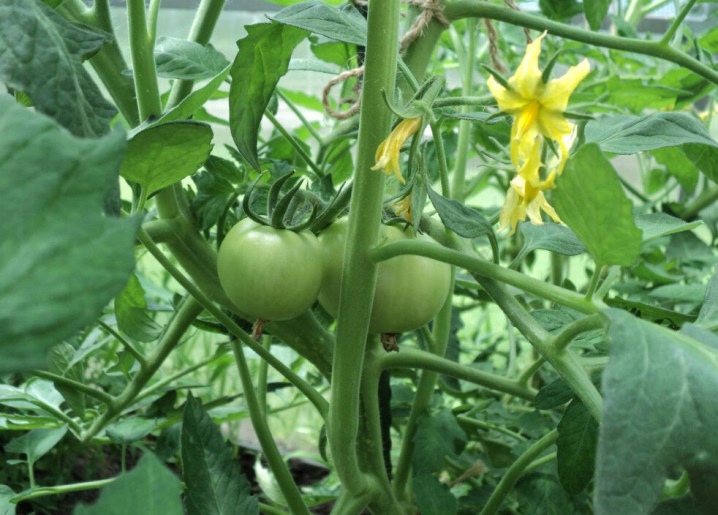









The comment was sent successfully.